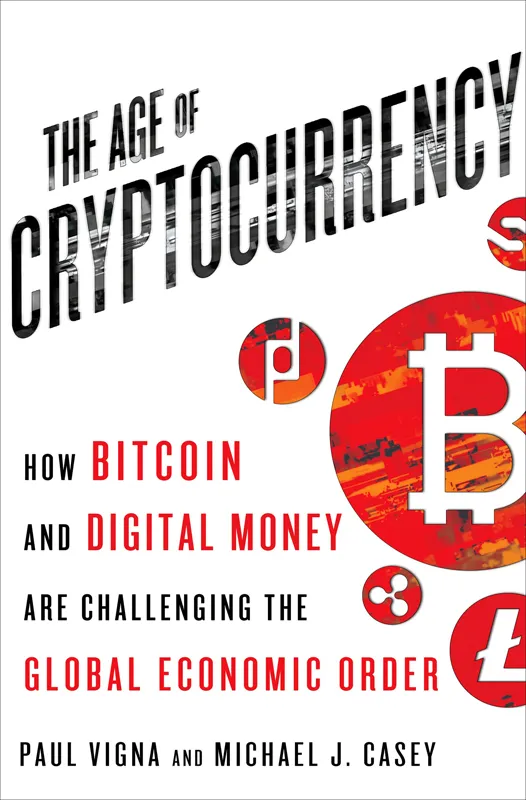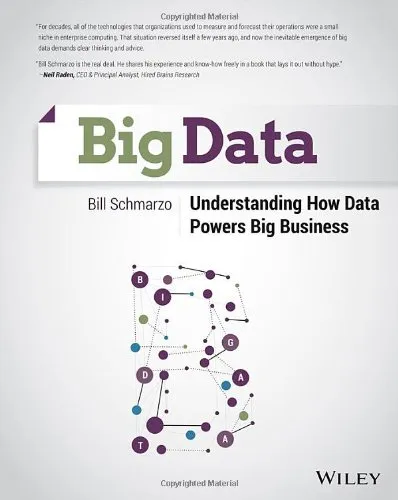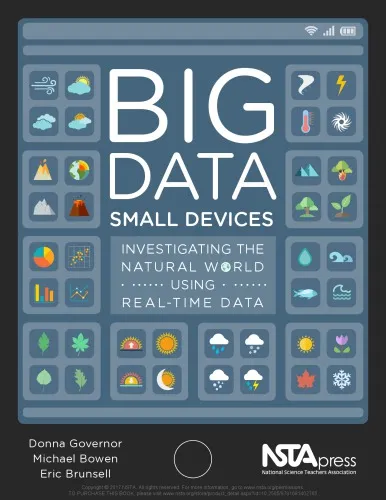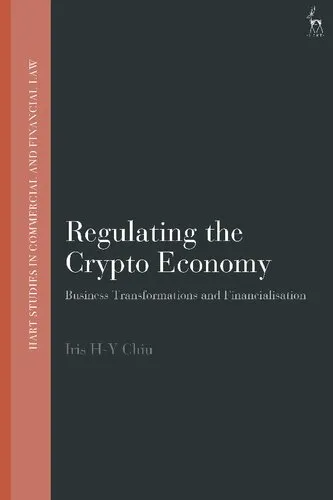The age of cryptocurrency: how bitcoin and digital money are challenging the global economic order
4.0
Reviews from our users

You Can Ask your questions from this book's AI after Login
Each download or ask from book AI costs 2 points. To earn more free points, please visit the Points Guide Page and complete some valuable actions.Related Refrences:
Introduction to "The Age of Cryptocurrency"
"The Age of Cryptocurrency: How Bitcoin and Digital Money Are Challenging the Global Economic Order" is a groundbreaking book by journalists Paul Vigna and Michael J. Casey. It explores the emergence and implications of Bitcoin and other digital currencies, delving deep into how this revolutionary technology is reshaping the economic, social, and cultural fabric of the modern world. Written in a persuasive and accessible style, the book is an essential read for anyone seeking to understand the disruptive force of cryptocurrency and its profound impact on global systems. From the origins of Bitcoin to its implications for global finance, "The Age of Cryptocurrency" provides a comprehensive look at how digital currencies are changing the way we think about and use money.
At its core, the book asks a profound question: Can a technology designed to bypass the traditional financial system succeed in creating an open, decentralized, and equitable financial marketplace? The authors unpack years of research and analysis to provide an insightful narrative about the evolution of Bitcoin, the blockchain, and other cryptocurrencies, offering readers not only a detailed overview of the key concepts but also an exploration of their real-world applications and consequences.
Detailed Summary of the Book
The book begins by placing Bitcoin in the context of the global financial crisis of 2008 and the subsequent erosion of trust in banks and governments. As traditional economic systems wavered, Bitcoin emerged as a radical alternative that promised transparency and decentralization. The authors take readers on a journey through Bitcoin's inception by its pseudonymous creator, Satoshi Nakamoto, and highlight the motivations behind creating a financial system free from intermediaries.
Vigna and Casey skillfully explain the mechanics of blockchain technology and how this immutable ledger underpins Bitcoin, making decentralization and trust possible without a central authority. They debunk many misconceptions about cryptocurrency, offering insights into its security features, mining processes, and peer-to-peer transaction networks. Through case studies, the authors illustrate how Bitcoin has been able to thrive even in geographies marked by economic instability and inflation, such as Zimbabwe and Argentina.
The book is not just a technical guide but a socio-economic analysis. It delves into the philosophical and ideological aspirations behind Bitcoin, exploring how libertarians, technologists, and entrepreneurs view it as a tool for empowerment and financial inclusion. Critically, the authors also shed light on regulatory debates, the black-market controversies tied to Bitcoin, and the rise of altcoins and blockchain applications outside of finance.
Towards the end, the book speculates about where cryptocurrency is heading and what challenges lie ahead. As adoption grows, debates about scalability, governance, regulation, and the environmental footprint of mining intensify. The authors conclude with an optimistic outlook, emphasizing that the rise of cryptocurrency is more than a passing trend—it's a fundamental shift in economic history.
Key Takeaways
- Bitcoin was conceived as a response to the 2008 financial crisis, offering an alternative to the traditional banking system.
- Blockchain technology is the foundational innovation behind cryptocurrencies, enabling trust and transparency without intermediaries.
- Cryptocurrencies represent both technological innovation and ideological shifts in finance, emphasizing decentralization and individual autonomy.
- Despite controversies, cryptocurrencies have already been proven to provide economic solutions in regions with unstable currencies.
- The future of cryptocurrency depends on resolving issues like regulation, scalability, and environmental sustainability.
Famous Quotes from the Book
"Bitcoin is not just a new kind of money; it's a new kind of trust."
"Bitcoin is more of a social movement than a financial innovation. It’s about rebuilding trust among humans."
"The idea of digital scarcity could revolutionize the way we manage assets, identity, and agreements."
Why This Book Matters
"The Age of Cryptocurrency" is a vital resource for anyone who wishes to understand not just Bitcoin and blockchain technology, but the larger financial, political, and social implications of digital currencies. It bridges the gap between technical knowledge and mainstream relevance, making the complex subject of cryptocurrencies approachable and engaging for readers of all backgrounds. Entrepreneurs, policymakers, developers, and curious technophiles alike will find the book to be a valuable guide in navigating the rapidly evolving crypto landscape.
The book anticipates many of today's debates around cryptocurrencies, providing early insight into their potential both to disrupt industries and to drive economic inclusion. As governments and institutions grapple with the implications of digital money, "The Age of Cryptocurrency" serves as an essential primer for understanding the stakes, opportunities, and challenges ahead. With cryptocurrency becoming increasingly intertwined with our broader economic and technological systems, the book’s lessons are more urgent and relevant than ever before.
Free Direct Download
You Can Download this book after Login
Accessing books through legal platforms and public libraries not only supports the rights of authors and publishers but also contributes to the sustainability of reading culture. Before downloading, please take a moment to consider these options.
Find this book on other platforms:
WorldCat helps you find books in libraries worldwide.
See ratings, reviews, and discussions on Goodreads.
Find and buy rare or used books on AbeBooks.
1312
بازدید4.0
امتیاز0
نظر98%
رضایتReviews:
4.0
Based on 0 users review
Questions & Answers
Ask questions about this book or help others by answering
No questions yet. Be the first to ask!














